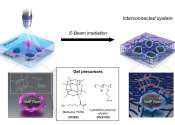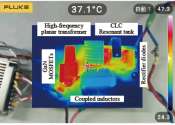Uncovering the secret of ternary polymer solar cell success
Solar cells will doubtless play a significant part in a sustainable energy future. Polymer solar cells (PSCs) specifically provide an excellent option because they are cheap to produce and can be both flexible and semitransparent. ...
Apr 21, 2022
0
1073









